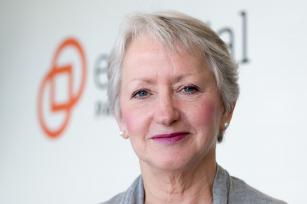
Breadcrumb
- Essential Partners
- Our Impact
- News and Notes
- We are Creating a Culture of Dialogue And So Can You
We are Creating a Culture of Dialogue And So Can You

What does “all in the same boat” really mean? Focus. Balance. Lean in. Pull together. For a harbor city on the east coast, the phrase seems appropriate. In fact, as Gloucester citizens, we are trying to figure out how to keep our shared boat afloat. With our history, the sea, land, skies and all people on board, we must discover how to sail onwards together, and remain stable, listening, and helping one another. Are our relational skills up to the urgency of integrating the depth and breadth of our history, cultures, environment, economies, education, needs and interests? We’re working on it.
It’s no easy task to move from an establishment model of engagement to ‘we the people’, but that’s where we’re headed. The tensions of what we could lose – our rugged beauty, passionate individualism, hardworking harbor, and our interdependence – hold all of us accountable to each other and our community when it may seem easier to simply sell, fight or fold.
In light of this need, Gloucester Conversations (GC) was formed. Through the generosity of our mentor organization, Essential Partners, Gloucester Conversations is helping our city develop a culture of dialogue. Thoughtful conversations are gradually replacing ‘my side/your side’ battles. A confluence of people are caring about ‘how’ we do ‘what’ we do. From city government and journalism, fishing and small businesses, arts and cultural groups to education, human and environmental services, we’re striving to use frameworks that make a place for people to be heard, respected and part of the decision-making.
How did Gloucester Conversations start? What’s working? What have we learned?
Inspired by the successes of other communities, Gloucester resident John Sarrouf of Essential Partners talked with locals and eventually gathered a group of five interested in Gloucester becoming a more collaborative community. We met for what seemed ad infinitum to explore our values, vision, skills and personal styles and to develop a strategy and related materials to help foster a culture of dialogue.
The first step was figuring out how other people and organizations had done this work and done it well. We reached out to Everyday Democracy and invited in leaders from Hands Across North Quabbin, Portsmouth Listens and Lawrence Community Works to share with our whole community their dialogue, decision-making, and community engagement processes. We launched two cornerstone initiatives. First were two types of dialogue circles. We hosted small group dialogues for people to tell their stories and express their hopes for the city. In addition to discussing specific issues, participants reflected on the process of dialogue itself, what worked, and how dialogue makes a place for everyone. The other type of dialogue circles were called Kitchen Table Conversations, a framework for anyone to gather neighbors and friends for a deeper kind of conversation in their home.
Our second initiative was training a cadre of facilitators who could lead small group conversations within larger community dialogues. We shared our vision with leaders in government, journalism, education, arts, and culture, asking for their support and seeking to understand how we could help them. In addition to in-person dialogue planning and facilitation support, our website offers dialogue and facilitation resources for anyone interested in pursuing a new conversation in Gloucester or another community.
What’s working?
Behind-the-scenes dialogue design, group facilitation, and support for specific city projects. Here are two examples:
When tensions escalated over the placement of a donated piece of public art, city leaders asked Gloucester Conversations to help guide the conversation around developing a public art policy. We designed and facilitated a dialogue session for arts and cultural leaders, and later, a successful open community meeting. GC also supported a dialogue to resolve tensions between representatives of a day center for homeless individuals and its neighbors. Participants discovered significant common ground, opened the possibility of collaborative problem-solving, and developed a plan for ongoing communication.
What have we learned?
The quality of conversations we have publicly is key to developing communication skills for every aspect of our lives, and visa versa.
While we might not always agree, our commitment to remaining in conversation with one another creates fertile ground for community, collaboration, and leadership. It helps us build strong families, raise kind children, and be good neighbors - people who listen, understand and act upon shared values for our shared future.
Gloucester is an amazing community. In the midst of major changes we are strengthening our capacity to steadily focus, balance, lean in, and pull together. May we become people and a community our children are proud of, and may the legacy we leave them be one they enjoy and tend lovingly for their children and their children, too.
